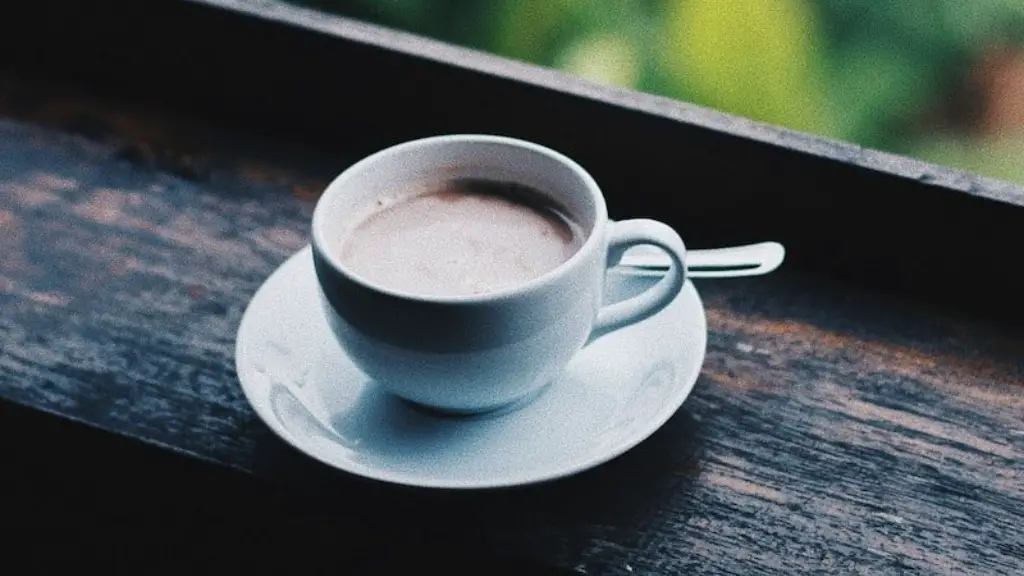Coffee has become a staple of many people’s daily routine, with more than 83 percent of adults in the United States drinking it in some form. Three cups of coffee a day isn’t necessarily a bad idea if the person is healthy, however, the potential side effects may discourage some people from drinking it. There are both benefits and drawbacks associated with drinking three cups of coffee each day, or more depending on an individual’s personal tolerance to caffeine.
One serious potential issue on the potential side effects list is the increased risk of developing anxiety or depression. People who drink more than three cups of coffee a day may have an increased risk of developing depression, according to a 2016 study by the Harvard School of Public Health. Individuals who drank four or more cups of coffee daily were at a 20 percent higher risk for developing depression than those who did not. Excessive caffeine consumption may also be associated with an increased incidence of panic attacks.
More than just the potential health risks, the excessive intake of caffeine can lead to difficulty sleeping, an increase in heart rate, increased levels of stress, and in some cases, difficulty focusing. For individuals with pre-existing heart issues or anxiety, drinking three cups of coffee in a day could exacerbate their symptoms.
Though it is naturally loaded with antioxidants, consumption of coffee is associated with several health benefits as well. It has been found to slow down mental decline, according to a recent 2019 study by the National Institute on Aging. Additionally, the antioxidants found in coffee have been found to be beneficial in the prevention of degenerative diseases like heart disease and stroke.
Overall, drinking three cups of coffee in a day is unlikely to be harmful for healthy people, provided that regular consumption does not irritate their stomachs or make them jittery. However, individuals should be careful not to exceed the three cup limit, as anything more than that could increase their risk of developing anxiety, depression, or heart issues. As with any other habit, moderation is key.
Increased Risk of Heart Problems
While three cups of coffee a day is generally not a major concern for healthy individuals, those who suffer from existing heart issues should avoid or minimize their intake. People with high blood pressure often considered a risk factor for heart disease can experience increased blood pressure when consuming too much caffeine. A study conducted by the University of Florida found that those with a higher intake of caffeine were 40 percent more likely to develop heart-related health complications than those who drank very little or none at all.
Caffeine-induced blood pressure increases can occur even in healthy people, as seen in a 2013 study conducted by the University of California. The study found that caffeine can cause a person’s blood pressure to increase significantly within minutes of ingesting the substance, with the effects lasting for up to three hours.
This blood pressure spike can increase the risk of stroke and heart attack, particularly for individuals with existing heart conditions. For this reason, it is advisable for such individuals to reduce or avoid their intake of coffee, as any amount may be hazardous.
Caffeine Tolerance
Some individuals are more sensitive to the effects of caffeine than others, and these people should be especially mindful of their caffeine intake. Those with a low caffeine tolerance are more likely to experience the side effects associated with too much caffeine, such as jitteriness, anxiety, or an upset stomach.
For individuals with a particularly low sensitivity, it is recommended that they reduce their intake to no more than one cup of coffee per day. People with a higher caffeine tolerance can safely drink more than three cups of coffee a day without experiencing any major side effects.
Alternatives to Coffee
If someone’s goal is to reap the health benefits associated with coffee but they are at risk of developing heart issues, or they cannot tolerate the high amounts of caffeine, there are a few alternatives they can consider. Non-caffeinated beverages like herbal teas, juices, or smoothies are all great options.
If an individual is looking for a caffeine boost to start their day off in the morning, a decaffeinated coffee can provide the same body and flavor that regular coffee does without the same level of caffeine. Decaffeinated coffee typically contains around 5 to 10 milligrams of caffeine.
Matcha green tea is also a great option for providing a natural energy burst and is naturally lower in caffeine than regular coffee. In comparison to a cup of coffee which usually contains around 95 milligrams of caffeine, matcha tea contains about 25 milligrams of caffeine per cup.
Caffeinated Beverages
Aside from coffee, there are several other caffeinated beverages available, such as energy drinks, tea, and even soda. Each of these beverages contain varying amounts of caffeine and have their own pros and cons.
Energy drinks, while they contain a lot of caffeine, are also filled with empty calories and added sugars. The consumption of energy drinks can be dangerous, as the high-energy drink consumption has been linked to several adverse health effects such as irregular heart rate, heart palpitations, nervousness, headaches, and a risk of addiction.
Tea, on the other hand, has many health benefits, depending on the type. While green tea usually contains low levels of caffeine, black tea can contain up to 70 milligrams of caffeine in a cup. This is less than what an average cup of coffee contains, but more than decaffeinated coffee.
Soda, on the other hand, does not contain any caffeine, but it is usually filled with sugar, artificial sweeteners, and other additives which can contribute to health issues over time.
Moderation is Key
No matter what caffeinated beverage someone chooses, moderation is key. Too much of anything can be harmful, and this is especially true with highly caffeinated beverages like coffee, energy drinks, and black tea. Ultimately, the best way to limit the potential effects of caffeine is to maintain a healthy balance between low and moderate intake. Drink responsibly, and it is still possible to enjoy all the benefits of coffee without worrying about its potential side effects.




